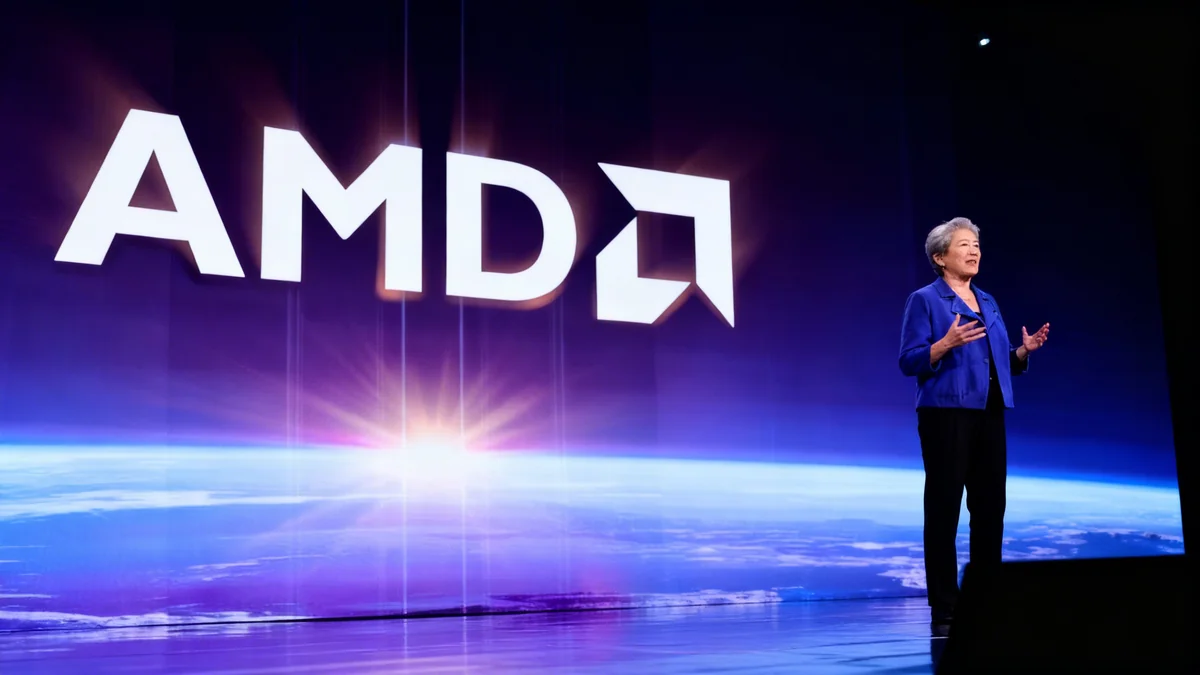Meta Platforms is significantly increasing its investment in artificial intelligence, projecting an annual expenditure of up to $72 billion. The announcement, made during a recent earnings call, has unsettled investors, leading to a sharp decline in the company's stock price despite strong revenue performance.
The market's reaction highlights growing concerns on Wall Street about the massive, unchecked spending in the AI sector and the lack of a clear timeline for a return on these colossal investments.
Key Takeaways
- Meta increased its projected annual AI spending to between $70 billion and $72 billion.
- The company's shares fell by more than 11% following the announcement.
- The stock drop occurred even as Meta's revenues surpassed Wall Street expectations.
- Investors are questioning the return on investment for the escalating AI expenditures.
Spending Surge Spooks Wall Street
Meta's commitment to artificial intelligence now comes with a staggering price tag. The company adjusted its capital expenditure forecast for the year, raising the upper limit from a previous estimate to a new range of $70 billion to $72 billion. This move is part of a broader strategy to secure a leading position in the rapidly evolving AI landscape.
However, the financial markets responded with immediate skepticism. On Thursday, Meta's shares experienced a significant slide, dropping by over 11%. This downturn is particularly noteworthy because it came on the heels of a positive revenue report that exceeded analyst predictions. The juxtaposition suggests that strong current performance is being overshadowed by fears of future financial commitments.
By the Numbers
Meta's stock price fell more than 11% in a single day, erasing billions in market value, directly after the company announced its increased spending plans for artificial intelligence.
The Billion-Dollar Question of ROI
For many investors, the core issue is not the investment itself, but the uncertainty surrounding its profitability. The path from massive capital outlay on AI infrastructure and talent to tangible returns on the balance sheet remains unclear.
This sentiment was echoed by Brian Mulberry, a portfolio manager at Zacks Investment Management, who pointed to the sheer scale of the spending as a primary concern. He noted the importance of understanding when these investments will begin to generate profit.
“The total dollar spend is just kind of what hangs us up a little bit,” Mulberry stated, adding, “They have to start doing a better job of showing us when that comes back to the balance sheet.”
The concern centers on the return on invested capital, a critical metric for evaluating how efficiently a company is using its money to generate profits. According to Mulberry, Meta's lack of transparency on this front is not helping to calm market fears.
An Industry-Wide Arms Race
Meta is not alone in its aggressive AI spending. Tech giants like Microsoft and Alphabet are also escalating their financial commitments, creating an industry-wide AI arms race. This trend is fueling concerns about a potential AI bubble, where valuations and investments far exceed the technology's current ability to generate revenue.
A Familiar Pattern
Microsoft recently experienced a similar market reaction. The company reported better-than-expected financial results, but its stock also dipped by nearly 3% after it forecasted an increase in future spending, largely driven by AI initiatives.
This pattern across major tech firms indicates a broader investor apprehension. While the long-term potential of AI is widely acknowledged, the short-term financial discipline of the companies leading the charge is now under intense scrutiny.
Zuckerberg Defends the Long-Term Vision
From Meta CEO Mark Zuckerberg's perspective, the massive spending is a necessary move to avoid falling behind. During the earnings call, he framed the investment as a strategic imperative, suggesting that the early returns are already visible within the company's core business.
“It’s pretty early, but I think we’re seeing the returns in the core business,” Zuckerberg told investors. “That’s giving us a lot of confidence that we should be investing a lot more, and we want to make sure that we’re not underinvesting.”
To support this vision, Meta has been aggressively pursuing top AI talent and technology. The company has reportedly offered multi-million dollar compensation packages and invested over $14 billion in the startup Scale AI. However, these moves have been accompanied by mixed signals, including recent job cuts affecting hundreds of roles within its AI division, suggesting a period of strategic turbulence.





